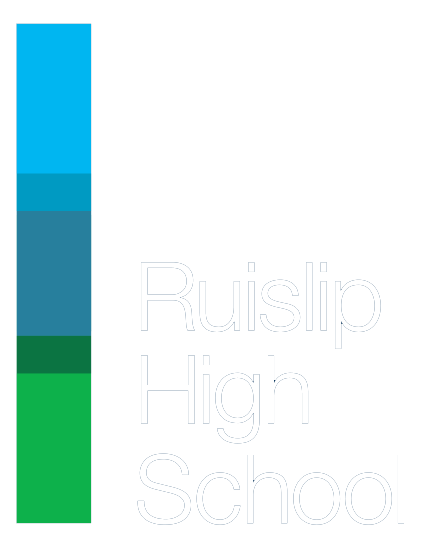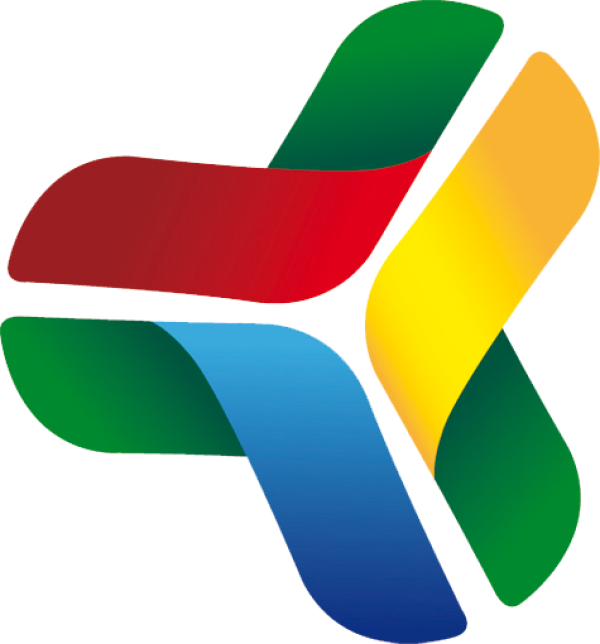Physical Education
Our intention is to give students the opportunity to develop their knowledge and understanding of different sports, and the skills required to participate in a variety of competitive situations. The PE Department has a clear vision that the subject provides students with a range of lifelong learning skills and we strive to ensure that all our students receive a well-rounded learning experience. This includes: being given the opportunity to participate in different sporting activities; learning the importance of health and wellbeing; and equipping students with the necessary values and tools to achieve in our school and beyond. It is our intention to engage pupils in the possibilities of sport, and for students to develop a passion for being active and healthy, and to show determination, resilience and confidence when trying new things.
Key Stage 3
All students in KS3 at Ruislip High School can expect to receive two hours of quality physical education per week consisting of a wide variety of different activities, including netball, football, rugby, dance, gymnastics, badminton, table tennis, gaelic football, handball, HRF, OAA, cricket, rounders and athletics. Students will have the opportunity to have an indoor and outdoor lesson each week and be taught two activities each half term.
Food and nutrition is taught alongside physical education once every two weeks. Students will cover a range of activities, from health and safety to applying the eatwell guide and its components, through theory and kitchen-based practicals. Students will then progress in exploring how nutrition impacts them as they physically develop, and these areas include nutritional analysis, meal planning and energy balance.
Sports Education is a method of delivery which encourages students to take ownership of their learning and their lessons. In their allocated teams, students plan, teach and deliver lessons to each other, as well as developing physical competencies in a range of activities. Sports Education promotes co-operation, teamwork and leadership as well as promoting a positive attitude towards life-long physical activity.
In Year 7, practical activities are designed to help students gain expertise in skills and techniques such as passing and shooting. In Year 8, students learn how to apply skills to tactical elements of game play, for example using outwitting skills when taking centre passes in netball. In Year 9, students will continue to develop their knowledge and understanding to apply skills to game scenarios, as well as learning the rules and regulations of activities in competitive situations, and having the opportunity to take on various leadership roles.
Students are encouraged to develop their understanding of health and fitness together with developing a deeper understanding of anatomy and physiology, including learning the names of muscles and bones, through the warm-up phases of lessons.
Above and Beyond clubs are also available before school at 7:30-8:10am and after school 15:00-16:00pm each day. Students are encouraged to attend these clubs to prepare for competitions and/or improve on skills they are taught in lessons. At the end of the academic year, students who attend the most extra-curricular clubs will be selected to attend the PE reward trip.
Key Stage 4
There are three pathways for students in Key Stage 4.
All students will have the choice in the option process to study GCSE PE or BTEC Tech Award. Students who do not take one of these options will expect to receive one hour of quality physical education per week, this includes a qualification in First Aid: Basic Life Support and use of an Automated External Defibrillator. GCSE students will expect to have three hours of theory and one hour of practical teaching per week and BTEC Tech Award students have two theory and two practical lessons a week.
GCSE Physical Education (Edexcel)
GCSE (9-1) in Physical Education consists of two externally-examined papers and two non-examined assessment components. It is designed to give students in-depth knowledge in a number of different topics involved in sport and exercise.
Overview:
Component 1-Fitness and Body systems (36%)
Units include applied anatomy and physiology; movement analysis; physical training and use of data.
Component 2-Health and Performance (24%)
Units include health, fitness and well-being; sport psychology; socio-cultural influences and use of data.
Theory
The course is 60% theory, consisting of TWO examinations. One examination based on Component 1: Fitness and the body systems (1 hour 45 minutes - 90 marks). The second based on Component 2: Heath and Performance (1 hour 15 minutes – 70 marks). Each exam consists of short and long answer questions.
Practical-Component 3- Practical Performance (30%)/Component 4- Personal Exercise Programme (PEP) (10%)
The practical assessment consists of the students completing three physical activities from a set list, one of which must be a team sport, one must be an individual sport and one is their free choice.
Students are required to select one physical activity and sport on which to plan a PEP to optimise/improve their performance in that activity.
Sports studied may include badminton, basketball, football, Gaelic football, swimming, table tennis and athletics. The school is also able to assess candidates in sports that are not available in school, for example skiing.
The BTEC Tech Award
The BTEC Tech Award in Sport consists of three units of work, one of which is externally assessed and two units that are coursework based. It is designed to give students an in-depth knowledge of a number of different topics in sport and fitness.
Overview
Unit 1 - Preparing Participants to Take Part in Sport and Physical Activity - Students will explore the different types and provision of sport and physical activity available for different types of participants, barriers to participation and ways to overcome these barriers to increase participation in sport and physical activity. They will also research equipment and technological advances in a chosen sport or physical activity and how to prepare our bodies for participation in sport and physical activity.
Unit 2 - Taking Part and Improving Other Participants’ Sporting Performance - Students will investigate the components of fitness and their effect on performance, take part in practical sport, explore the role of officials in sport and learn to apply methods and sporting drills to improve other participants’ sporting performance.
Unit 3 - Developing Fitness to Improve Other Participants’ Performance in Sport and Physical Activity - Students will be introduced to, and develop an understanding of, the importance of fitness and the different types of fitness for performance in sport and physical activity. They will also develop an understanding of the body and fitness testing.
Key Stage 5
BTEC Level 3 National Extended Certificate in Sport
The Extended Certificate in Sport is a two year full time course. It involves 360 guided learning hours and is the equivalent in size to one A Level. The content of this qualification has been developed in consultation with academics to ensure that it supports progression to higher education. Employers and professional bodies have also been involved and consulted to confirm that the content is appropriate and consistent with current practice for students who may choose to enter employment directly in the sport sector.
Content
Unit 1- Anatomy and Physiology
Students explore how the skeletal, muscular, cardiovascular and respiratory systems function and the fundamentals of the energy systems.
This unit is externally marked. The examination will be one hour and 30 minutes in length. The number of marks for the examination is 80.
Unit 2- Fitness Training and Programming for Health, Sport and Well-being
Students explore client screening and lifestyle assessment, fitness training methods and fitness programming to support improvements in a client’s health and well-being.
This unit will be assessed under supervised conditions.
Part A: Students will be given a case study one week before the supervised assessment period to carry out preparatory work.
Part B: This is a written examination under controlled conditions in which students can use research notes to complete a task that builds on Part A.
Unit 3-Professional Development in the Sports Industry
Students explore the knowledge and skills required for different career pathways in the sports industry. Students will take part in, and reflect on, a personal skills audit, career action plan and practical interview assessment activities.
This unit will be assessed internally by a series of tasks.
Unit 4-Sports Leadership
Students study what makes a good leader, the different capacities of this role, and the leadership skills and techniques necessary when leading activities in different roles.
This unit will be assessed internally by a series of tasks.
Primary Links
Each year Ruislip High School students are involved in assisting local primary schools with the running of their sports days. These primary schools include Sacred Heart and Field End Primary School.

